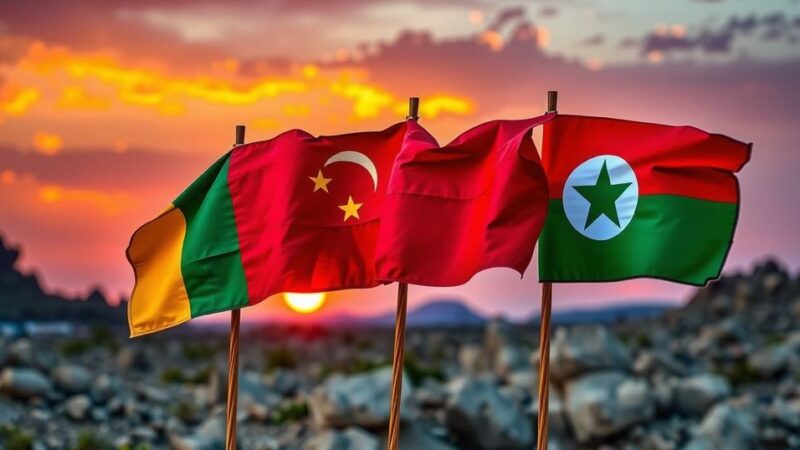Ethiopia’s Prime Minister Abiy Ahmed has ruled out military conflict with Eritrea over Red Sea access, affirming a commitment to diplomatic resolution of disputes. His stance emphasizes peace and cooperation, underscoring a significant shift from historical hostilities between the two nations.
Recently, the Prime Minister of Ethiopia, Abiy Ahmed, has dismissed the notion of armed conflict with Eritrea over access to the strategically significant Red Sea. This declaration comes amidst rising tensions in the Horn of Africa, where several nations vie for regional influence. Prime Minister Ahmed emphasized that diplomacy remains the preferred path for resolving differences, aiming to foster peace and stability in the region.
Abiy Ahmed, in a statement, highlighted the importance of collaboration over confrontation. He pointed out that using military force would not be a viable solution, as he firmly believes that dialogue is the key to addressing the underlying issues between Ethiopia and Eritrea. The Prime Minister’s decision illustrates Ethiopia’s commitment to a peaceful coexistence with Eritrea, despite historical conflicts.
This stance is particularly significant given the backdrop of previous hostilities between the two nations, including a brutal border war that lasted from 1998 to 2000. The Prime Minister’s statement indicates a broader strategy aimed at utilizing diplomatic channels to secure national interests and regional unity. By prioritizing diplomacy, Ethiopia seeks to avoid the pitfalls of past conflicts and embrace a path of mutual cooperation with its neighbors.
In conclusion, Prime Minister Abiy Ahmed’s firm rejection of war with Eritrea signals Ethiopia’s commitment to peace and diplomatic solutions in a historically volatile region. By advocating for dialogue rather than armed conflict, Ethiopia aims to enhance stability, establish better relations with Eritrea, and foster a cooperative environment in the Horn of Africa. This approach reflects a significant shift towards peaceful negotiations and conflict resolution.
Original Source: www.msn.com






